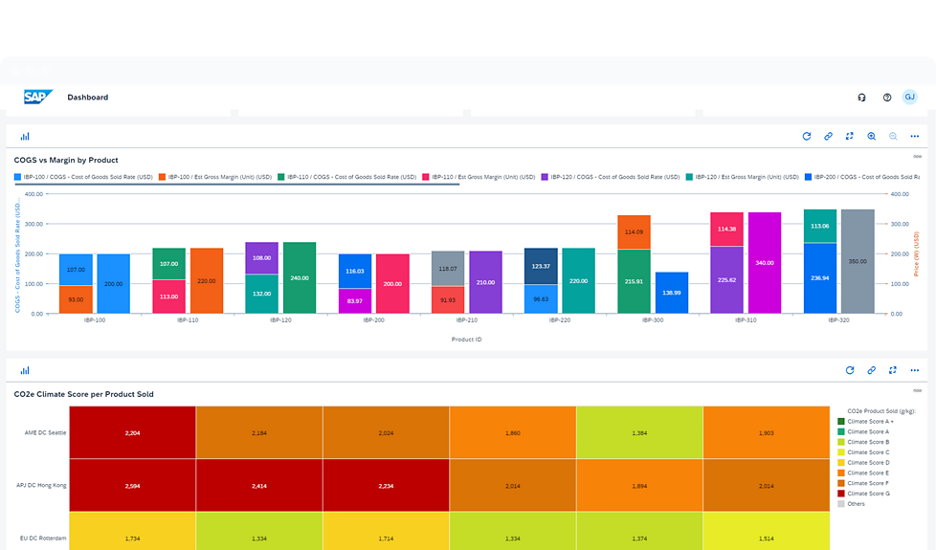SAP Integrated Business Planning for Supply Chain

What is SAP Integrated Business Planning for Supply Chain?
Plan for a sustainable, risk-resilient future with the SAP Integrated Business Planning for Supply Chain (SAP IBP) solution. Speed responsiveness and stay ahead of change with supply chain analytics, what-if simulations, alerts, and more.
Powered by SAP HANA, this cloud-based solution combines sales and operations planning (S&OP), forecasting and demand, response and supply, demand-driven replenishment, and inventory planning.
Automated, tightly coordinated supply chain planning processes
Advanced machine learning algorithms and planning capabilities
Native integration with SAP Supply Chain Control Tower and other solutions
2023 annual customer report for SAP IBP –
What were the highlights for SAP IBP over the past year? Dive in to find out.
Key benefits
Predict demand through AI-powered algorithms
Improve short- to long-term forecast accuracy through AI-powered algorithms, statistical modeling, demand sensing, and automated outlier correction in your sales history data.
Empower planners with multilevel supply planning
Create an effective supply plan for your entire network by modeling across locations and multilevel bills of material. Boost agility with response management.
Foster collaboration in one unified S&OP process
Integrate financial and operational planning in one S&OP process. Run simulations of demand and supply changes to prepare for supply chain disruptions.
Key features
Forecasting and demand management
Demand planning
Advanced demand sensing
Robust statistical models
Time-series analysis
Response and supply planning
Multilevel planning
Supply planning
Rough-cut planning
Response management
Sales and operations planning (S&OP)
Real-time planning
Simulation and comparison of scenarios
Collaboration
Performance monitoring
See how customers are succeeding with SAP
Predicting ever-changing demand
See how BYK improved its data precision and transparency to enable accurate demand planning.
Optimizing inventory and service levels globally
Explore how Hyundai Mobis is reducing excess inventory and being more responsive to customer needs.
Enhancing sustainable production with data forecasting
Learn how DMK Group unified data processes on one platform so business units can track inventory data.
Building an intelligent digital supply chain
Learn how Microsoft harnessed big data, machine learning, and IoT to build a connected and predictive digital supply chain.
Product awards
SAP Integrated Business Planning wins "Buyer's Choice" award from TrustRadius
SAP Integrated Business Planning wins "Top Rated" award from TrustRadius
What are analysts saying about planning and the sustainable, risk-resilient supply chain?
Building visibility with supply chain planning
Read the Oxford Economics research into building visibility and collaboration in supply chain planning to avoid risk.
Tapping the power of AI for supply chain planning
Read what IDC has to say about how forward-thinking companies are using AI to make sense of their data and conquer supply chain complexity.